Assange Sent to ‘Purgatory’ by British High Court
He can be extradited if the U.S. gives “assurances” his First Amendment rights will be protected and he doesn’t face the death penalty.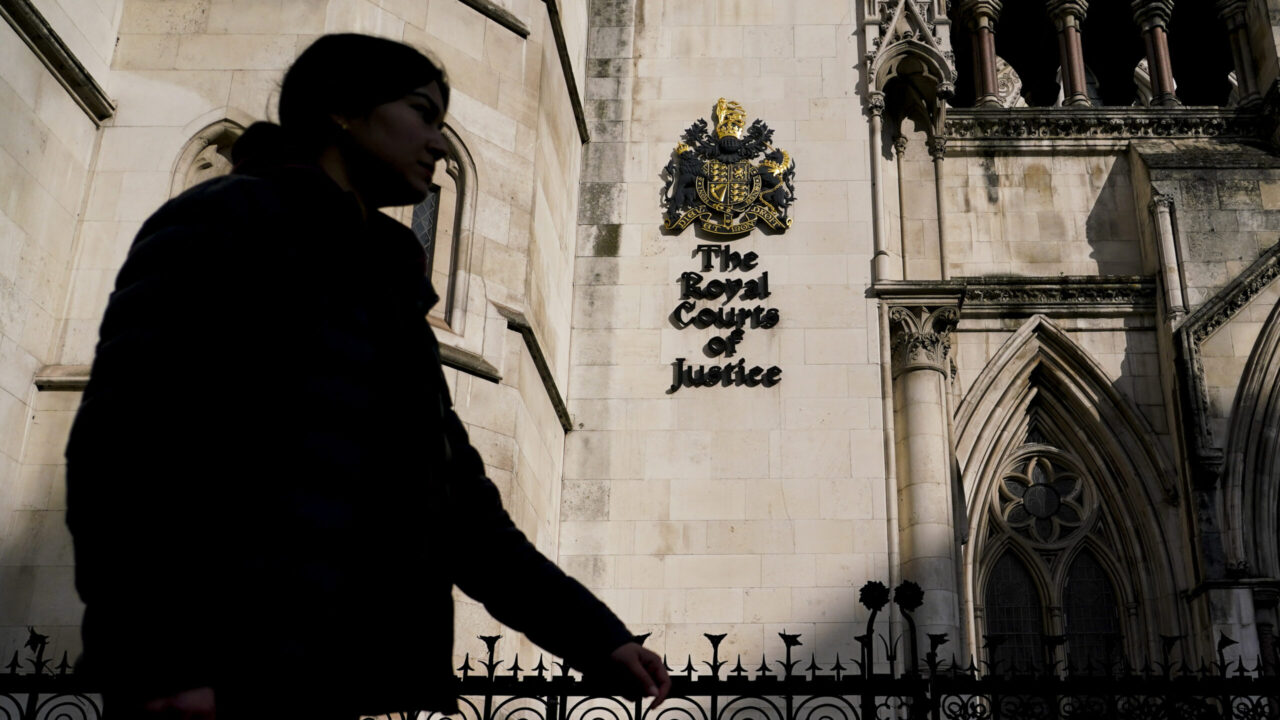 A woman walks past the Royal Courts of Justice, in London, Tuesday, March 26, 2024. Two High Court judges said they would grant Assange a new appeal unless U.S. authorities give further assurances about what will happen to him. The case has been adjourned until May 20. (AP Photo/Alberto Pezzali)
This is Part of the "The Persecution of Julian Assange" Dig series
A woman walks past the Royal Courts of Justice, in London, Tuesday, March 26, 2024. Two High Court judges said they would grant Assange a new appeal unless U.S. authorities give further assurances about what will happen to him. The case has been adjourned until May 20. (AP Photo/Alberto Pezzali)
This is Part of the "The Persecution of Julian Assange" Dig series
In a split decision, the British High Court on Tuesday, ruled that Julian Assange may be extradited to stand trial in the United States on charges he violated the Espionage Act of 1917 if the United States government gives certain “satisfactory assurances” to protect his rights to freedom of expression and that he will not face the death penalty if convicted. But the ruling raises serious legal questions in a case that has been unprecedented from the outset.
The High Court has given the United States three weeks to give “satisfactory assurances” that Assange is “permitted to rely on the First Amendment to the United States Constitution (which protects free speech), that he is not prejudiced at trial (including sentence) by reason of his nationality, that he is afforded the same First Amendment protections as a United States citizen and that the death penalty is not imposed.” If those assurances are not given, then leave to appeal will be given and there will then be further appeal hearings. If assurances are given, then the parties will have a further opportunity to make representations, and there will be a further hearing on May 20, 2024 to decide if the assurances are satisfactory, and to make a final decision on leave to appeal.
In a 66-page decision, the court found “a real prospect of success” in three of the nine grounds on which Assange was seeking further appellate review. But instead of simply allowing Assange to appeal on those grounds, the court punted by giving the U.S. the option to take Assange into custody and send him to the U.S. for trial, if it makes the necessary assurances.
The High Court is obligated to uphold Assange’s rights to “freedom of expression” under Article 10 of the European Convention on Human Rights, which protects Assange even if the U.S. courts refuse to do so.
The ruling reveals that the High Court does not understand the American system of government. Whatever “significant assurances” the Department of Justice may give the High Court, they are not binding on the Judicial Branch. The High Court is obligated to uphold Assange’s rights to “freedom of expression” under Article 10 of the European Convention on Human Rights, which protects Assange even if the U.S. courts refuse to do so. The only way to do that is to deny extradition.
Assange’s wife Stella Assange called the ruling “astounding” and “utterly bizarre.” She said “the court is tying itself in knots,” and added that “the case should have just been thrown out and Julian should not have spent a single day in prison.” She accused the U.S. of “bringing a case based on the persecution of a journalist for his political opinions.” Earlier on Tuesday, she branded her husband a “political prisoner” who is being “persecuted” for exposing the “true cost of war” and that the case against him was “shameful.”
Assange’s brother Gabriel Shipton, expressed regrets over the decision. “This morning, I was hoping Julian would be granted leave to appeal. At worst, I feared he would be extradited before tomorrow morning. Instead, his purgatory continues.” But he promised to continue to put pressure on the U.S. and Australian governments to drop the prosecution and free his brother.
The court held that extradition is “incompatible” with Article 10 of the European Convention on Human Rights which protects freedom of expression. “The First Amendment to the United States Constitution gives strong protection to freedom of expression, which is similar to the protection provided by article 10 of the Convention.” But the court reasoned that if Assange is permitted to rely on the First Amendment,” it is not arguable that extradition will give rise to a real risk of a flagrant denial of his article 10 rights.”
But this may be a hollow victory for Assange. The High Court appears to assume that under U.S. law, Assange will be allowed to assert his First Amendment rights. On the contrary, the U.S. Supreme Court has never decided whether a defendant can raise their First Amendment rights in a prosecution under the Espionage Act. In fact, lower courts have held they may not. It remains to be seen what “satisfactory assurances” the U.S. will be able to give. Assange’s lawyers are sure to challenge those assurances at the May 20 hearing.
The court also found that if extradited, Assange “might be prejudiced at his trial by reason of his nationality” contrary to the Extradition Act 2003. The prosecutor on behalf of the U.S. had argued that at trial the U.S. might claim that “foreign nationals are not entitled to protections under the First Amendment.” If such an argument is made, and if it succeeds, then the High Court held that “it is arguable that Mr. Assange might be prejudiced at his trial by reason of his nationality. Given that the prosecutor has said that he may raise this argument, it is reasonable to proceed, for the purposes of this application, on the basis that the argument might be made and that it might succeed.”
The third ground on which the court found ”a real prospect of success” related to the death penalty. The court found that extradition is barred if there is inadequate protection against the imposition of the death penalty protection. “The Secretary of State agrees that, if he is extradited, Mr. Assange could be charged with offences that carry the death penalty and that there is nothing then to prevent the death penalty from being imposed.” On that basis, the court considered it is “arguable that the [U.K.] Secretary of State was wrong to order extradition and that she should have concluded that extradition is barred by inadequate specialty/death penalty protection.”
The court rejected the balance of the grounds on which Assange sought appellate review. Although the court acknowledged that U.K.-U.S. Extradition Treaty prohibits extradition for “a political offence” and that the offenses with which Assange is charged do fall within that category, the court refused leave to appeal due to a quirk in British law. Earlier U.K. legislation prohibited extradition for a political offense, but that legislation has been repealed and the Extradition 2003 Act does not prohibit extradition for a political offense. “Parliament has chosen not to incorporate the Treaty into U.K. law and not to prohibit extradition for a political offence.” The court ruled that the Treaty “does not create personal rights that can be enforced by the courts” and it is not a breach of Article 5 of the European Convention of Human Rights or an abuse of the court’s process, to seek extradition for a political offense, contrary to the terms of an unincorporated treaty.
Assange’s lawyers have vigorously argued that a conviction of Assange would chill journalists from fulfilling their function as watchdog for the public, citing the 1996 case of Goodwin v. the United Kingdom.
Given the mixed decision from the High Court, Assange could ask the European Court of Human Rights, sitting in Strasbourg, France, to hear his case. Under Rule 39, if that court finds “exceptional circumstances” and an “imminent risk of irreparable harm,” it can order provisional measures, including an order that the U.K. hold back from extraditing him to the U.S., while the case is pending in the European court. On technical grounds, ECHR dismissed two applications from Assange in 2015 and 2022.
Assange could base his appeal to the ECHR on several provisions of the European Convention on Human Rights. Article 3 (“Prohibition of Torture”) provides that “No one shall be subjected to torture or to inhuman or degrading treatment or punishment.” Assange has previously argued that the combination of his poor health and the notorious conditions of maximum-security prisons in the United States, his incarceration there would amount to torture or inhuman or degrading treatment.
His primary grounds of appeal would be under Article 10 (“Freedom of expression”) which provides in Section 1 that “Everyone has the right to freedom of expression,” which includes “freedom to hold opinions and to receive and impart information and ideas without interference by public authority and regardless of frontiers.” Here he would renew all of the arguments he has been making for years that the indictment is a frontal assault on freedom of the press. Columbia law professor Jameel Jaffer testified that the indictment is focused “almost entirely” on things that national security journalists do “routinely and as a necessary part of their work,” including “cultivating sources, communicating with them confidentially, soliciting information from them, protecting their identities from disclosure and publishing classified information.”
Assange’s lawyers have vigorously argued that a conviction of Assange would chill journalists from fulfilling their function as watchdog for the public, citing the 1996 case of Goodwin v. the United Kingdom which held: “Press freedom assumes even greater importance in circumstances in which State activities and decisions escape democratic or judicial scrutiny on account of their confidential or secret nature. The conviction of a journalist for disclosing information considered to be confidential or secret may discourage those working in the media from informing the public on matters of public interest. As a result, the press may no longer be able to play its vital role as “public watchdog” and the ability of the press to provide accurate and reliable information may be adversely affected.”
The court also denied extradition on the grounds that Assange was being prosecuted on account of his “political opinions’ contrary to the 2003 Act. The court held that the “prosecutor gave sworn evidence that extradition is sought not because of Mr. Assange’s political opinions, but on account of the extradition offences with which he is charged and so that he can be tried for those offences” and Assange “does not accuse the prosecutor of dishonesty.” The High Court noted that the lower court judge had found that Assange “had not shown that the request was made for the purpose of prosecuting him on account of his political opinions as opposed to being made on account of the extradition offences,” and it “is not arguable that the judge was wrong.”
The court also found that the lower court judge “correctly took account of rights under the United States Constitution which are similar to article 7 of the Convention,” and that the evidence shows that “the United States courts will examine the law underpinning the charges to ensure that it is sufficiently clear and precise and does not infringe on expression to a degree greater than justified.” Since “it is not arguable that the judge was wrong to conclude that Mr. Assange would not be exposed to a real risk of suffering a violation of his article 7 rights in the United States.”
By failing to forthrightly grant Assange a full and fair appellate hearing on legal grounds which it admits have ”a real prospect of success,” the High Court has abdicated its duties under Anglo-American and international law.
Aside from the three charges on which the court granted partial relief, the court found that the charges against Assange “concern conduct which is contrary to the ordinary criminal law and which does not directly concern free expression rights.” Therefore, the “prosecution of such conduct does not involve a flagrant denial of the rights protected by article 10 of the Convention. Insofar as Assange is charged with three charges of disclosing information, the charges are limited to the public disclosure of the names of human intelligence sources. There is a strong public interest in protecting the identities of human intelligence sources, and Mr Assange has not identified any countervailing public interest justification for disclosure.”
The court found that there “are strong reasons, as the judge found, to conclude that Mr. Assange’s activities did not accord with the ‘tenets of responsible journalism.’ However, if (as might be the case) Mr. Assange is not permitted to rely on the First Amendment then it is arguable that his extradition would be incompatible with article 10 of the Convention.”
On the issue of whether Assange’s right to a fair trial was in jeopardy, the court found that “it is not arguable that the [lower court] judge was wrong to conclude that there was no real risk that there would be a flagrant denial of Mr. Assange’s right to a fair trial. That includes the approach to the indictment, plea bargaining, venue for trial, jury selection, dealing with prejudicial comment, an allegation that evidence was obtained by torture, and the approach taken to sentencing.”
Likewise, the court denied relief on the grounds that Assange’s right to life, and prohibition of inhuman and degrading treatment were at risk. The court acknowledged that the lower court judge “took account of evidence that the CIA had planned to kidnap Mr Assange from the Ecuadorian Embassy. She concluded that this was not related to the extradition proceedings, and that it had not been shown that any risk would arise if he was extradited to the United States.” The court noted that “Assange wishes to rely on fresh evidence on these matters, but it is not arguable that the judge would have reached a different conclusion if she had considered the fresh evidence.”
By failing to forthrightly grant Assange a full and fair appellate hearing on legal grounds which it admits have ”a real prospect of success,” the High Court has abdicated its duties under Anglo-American and international law. This is the latest travesty in one of the most important cases of press freedom in history.
Your support matters…Independent journalism is under threat and overshadowed by heavily funded mainstream media.
You can help level the playing field. Become a member.
Your tax-deductible contribution keeps us digging beneath the headlines to give you thought-provoking, investigative reporting and analysis that unearths what's really happening- without compromise.
Give today to support our courageous, independent journalists.
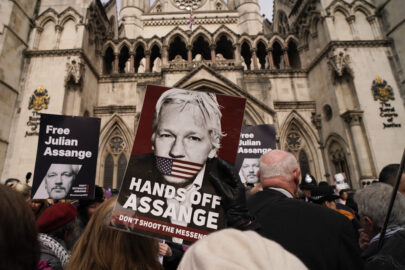
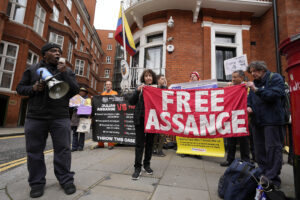
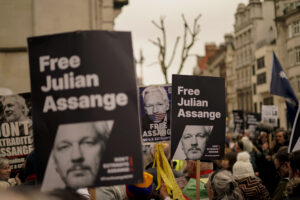
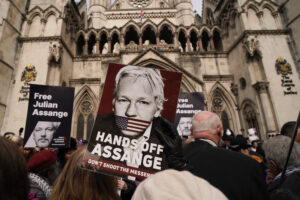
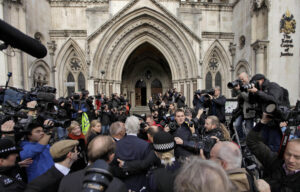
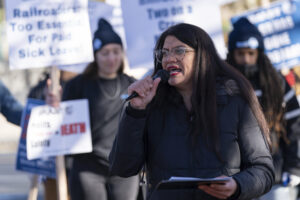
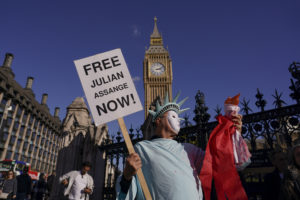
You need to be a supporter to comment.
There are currently no responses to this article.
Be the first to respond.